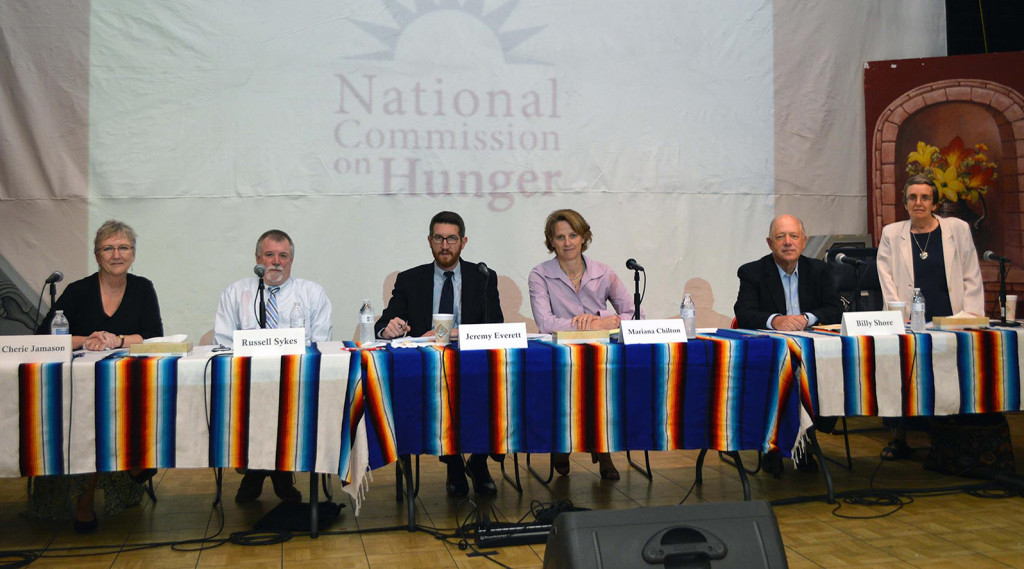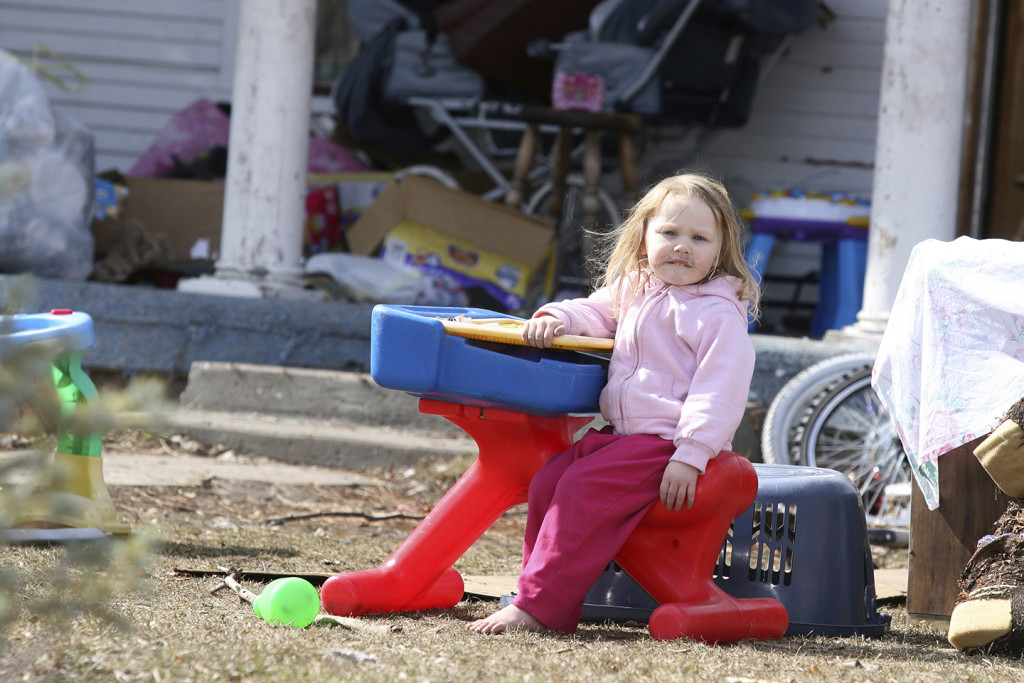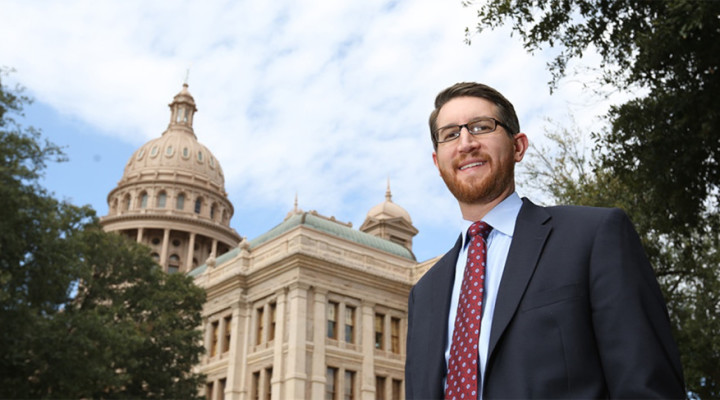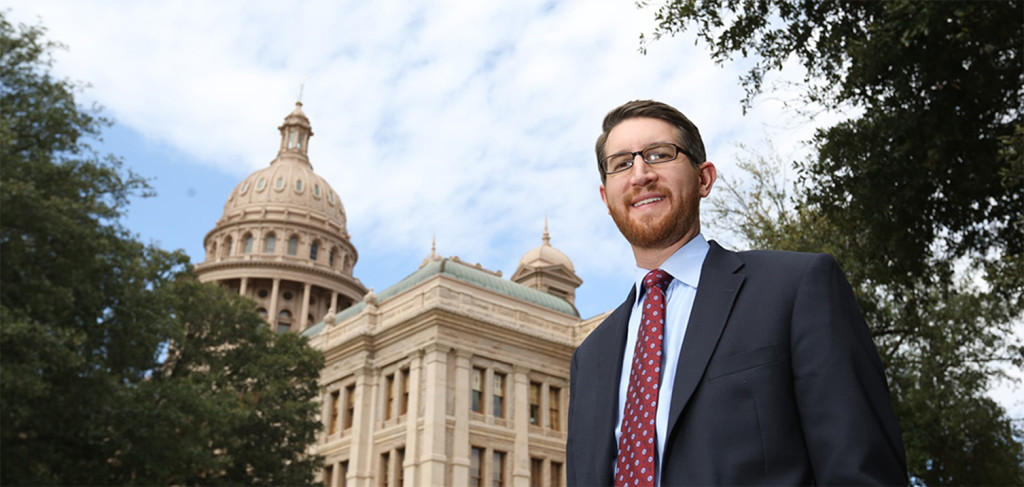Jeremy Everett was a young Baptist seminary graduate grappling with exactly how to answer his calling — to serve the poor — when he found the answer in a kitchen in Waco, Texas, at a birthday party for a Dominican priest from Peru.
Theologian Gustavo Gutiérrez — the founder of liberation theology — had come to lecture at Baylor University. To the 6-foot, 4-inch Everett, the diminutive priest, now in his 80s, was “like the Latino version of Yoda — wise as all get-out.”
“I had cake and was so nervous, because this was one of my heroes,” Everett recalls. Some faculty and students had gathered at a professor’s home, and “the more extroverted students were peppering him with questions. I couldn’t get anything out.”
Then came the eye-opening moment in the kitchen with Gutiérrez.
“He told me, ‘Most people think of solidarity with the poor as living with them for a time. But solidarity with the poor is committing your life to their cause,’” Everett says. “It was almost as if nothing else happened that night — poof! But it affirmed that if you’re going to have solidarity, you have to be in it for the long haul.”
Fourteen years later, Everett, 40, is firmly in it for the long haul.
He is the founding director of the Texas Hunger Initiative within Baylor University, begun in 2009 as a partnership with Texas Baptist Christian Life Commission, which provided seed money. Today, THI has 12 regional offices, working with the U.S. Department of Agriculture and the Baptist General Convention of Texas to build public-private partnerships of federal, state and local government agencies, nonprofit organizations, groups from various faiths and business leaders.

A National Commission on Hunger panel included (from left): Cherie Jamison, Russ Sykes, Jeremy Everett, Dr. Marianna Chilton, Bill Shore, and Dr. Deborah Frank. (PHOTO/Charis Dietz/Baylor Marketing Communications)
The goal was — is — to defeat hunger, measured by access to three healthy meals a day. THI organizers also hoped to create a model to be used by other states.
“This isn’t about the basket of chips that gets thrown away at lunch, or feeling guilty because you don’t finish your sandwich,” Everett says. “It’s larger than access to food, larger than throwing money at the situation. If we don’t work in concert with those who are hungry, if we don’t empower them, we’re not going to solve the problem. We have to look at the bigger issue of poverty.”
‘Why was I born with so much?’
It’s the Tuesday after New Year’s Day 2016, and Everett is in his office after Baylor’s Christmas break. He claims to be still in sweatpants mode — “my paternity pants, I call them.”
In reality, he is clad in a suit, readying for a meeting of THI staffers descending on Baylor from across the state. And if there is to be the proverbial clean slate of a new year, no one has told Everett’s dry-erase board.
“It’s already been revised twice today,” he says, nodding at a board covered with to-do lists, notes, schedules and charts. “We take a picture of the board, and a graduate student types it up every day so we can put it in a spreadsheet. Most of my phone pictures are either pictures of my kids or the dry-erase board.”
“An electronic dry-erase board — that’s my dream.”
A third-generation preacher’s kid, the San Antonio, Texas, native had a question ever since he was a freshman at Samford University in Birmingham, Ala.: “‘Why was I born with so much and some with so little?’ I asked pastors and professors. Most said, ‘You should be grateful for what you’ve grown up with.’ But that wasn’t truth for what was on my mind.”
He had a “Franciscan conversion” in 1997, he says, when he saw the movie Brother Son, Sister Moon, the 1972 biopic about St. Francis of Assisi, on television.
“I watched the story of this young man who seemed to have everything going for him but wasn’t able to be fully devoted to God and his neighbors. He was loving people — not in and of themselves, but for his own ends.
“I saw that and broke down. I packed up my stuff in my Volvo sedan and got away to downtown Birmingham, to a homeless shelter, and gave away my possessions. I knew then that I was called to the poor, but I had no idea what that meant.”
After earning a bachelor’s degree in religion and history in 1998, he did stints as a pastor in Travis, Texas; as an organic farmer at World Hunger Relief Inc. in Elm Mott, Texas; as a community organizer with Mission Waco; and as a teacher of high school boys at a juvenile justice alternative education program in Waco.
He earned a master of divinity degree with an emphasis on missions from Baylor’s George W. Truett Theological Seminary in 2001. While there, he met another life-changer — Amy Miley, working on a dual master’s degree in social work and divinity.
She was “intriguing, whimsical, very compassionate,” Everett says. “I saw her at Common Grounds [a local coffeehouse], and the more I got to know her, the more I thought we’d be a really good fit. But I’d gone through that Franciscan conversion, and in all honesty, you didn’t have all that many people into the poverty thing. I was unsure what she would think of me.”
But both loved to walk and talk in Waco’s Cameron Park; both wanted to live simply and work for justice.
“It took me a long time to convince her to marry me. We took a lot of hikes.”
Fourteen years into their marriage, with sons ages 11, 9, and nine months, his wife says she chose well.
“Jeremy has a vision, and he pursues it,” says Amy Everett, associate pastor of adult spiritual formation at Waco’s DaySpring Baptist Church. “Our marriage is a witness to that. He’s an iron-sharpens-iron kind of husband — a generous, committed and stabilizing force in our family as well as in the community. He’s helped push me and make me grow.” 9
‘What we need is silver buckshot’
By 2004, they had moved to San Antonio, where Jeremy became a community ministries director for Baptist Child and Family Services, a global network of health and human services, and a manager of Guadalupe Street Coffee Shop, a social enterprise project.
“I was working at the coffee shop, spending 90 percent of my energy with people living in absolute poverty,” Everett says. “We’d do good economic development projects, but poverty is systemic in nature. Addressing it purely as a local issue is like using topical cream to try to stop internal bleeding. … In our state, 4.8 million people are food insecure and living in poverty, with one child in four not knowing where their next meal is coming from. All this in agriculturally rich Texas, with an abundance of Meals on Wheels programs, food banks and faith-based food pantries.”
His focus began changing when Hurricane Katrina hit the Gulf Coast in 2005.
Amid the death and destruction, disabled and ill people were evacuated with others to such shelters as high school gyms.
“Jeremy was part of the Baptist Child and Family Services team and saw the inadequacy of our country’s response to medically fragile Katrina victims,” says Suzii Paynter, then director of the Texas Baptist Christian Life Commission and now executive coordinator of the Cooperative Baptist Fellowship.
A report by the U.S. Senate Committee on Homeland Security and Governmental Affairs acknowledged the failure to respond sufficiently and recommended a coordinated multi-sector approach for future disasters.
“BCFS got a contract to help prepare for the next disaster,” Paynter says. “And when it hit, it was night and day. There were pharmacists, nurses and medical equipment ready. I saw how you can really coordinate and have a collective impact.
“I was very impressed with the scale of Jeremy’s community organizing, and that prompted me to think about hunger in a different way, in tandem with people from the USDA in Dallas. We thought, ‘If we could do that for a disaster, can we translate that to hunger?’ As a church, we had the capacity to dream a bigger dream, ask a bigger question — and give this talented young man a chance to put his imagination to work. Jeremy has the ability to negotiate relationships in academic, policy, funding and food management sectors.”
A decade after Katrina, “I don’t spend 90 percent of my time living with people who are living in poverty; I spend it with cities and organizations and Congress,” Everett says.
The youth who was hesitant to ask a priest a question has become a man who testifies before congressional committees, makes presentations across the country and has appeared on PBS documentaries. He has raised nearly $30 million dollars for research, policy analysis and establishment of programs. And in 2014, Congress appointed him to the National Commission on Hunger, a new bipartisan group charged with reducing the need for federal nutrition assistance.
At THI’s 2014 Hunger and Poverty Summit, Paynter told participants that “There’s not a silver bullet; what we need is silver buckshot,’” Everett remembers. “One of our problems is we’re a nation of specialists. So we’ve been building a public and private infrastructure so we can communicate, trust each other, have the same plan.”
Working alongside THI are Baylor faculty in disciplines from social work to business, seeking evidence-based foundations for practical solutions.
“Our folks do the legwork,” Everett says. “We run the data, tell people how they can stay in the black. We say, ‘Here are all the resources in your community; here’s the research.’ And child hunger specialists in those areas take leadership. We identify best practices, but you don’t want to limit them. It should be a creative process.”
Jeff Tanner, a former marketing professor at Baylor, researched and identified good business models — with key ingredients of sponsorships, supply chain management and community involvement — that could be used to feed hungry children after school and during summers.
“That whole notion of understanding from a business perspective of what makes a program sustainable was truly visionary,” said Tanner, dean of Old Dominion University’s Strome
College of Business in Norfolk, Va. “When Jeremy brought that idea to me, I was thrilled. He doesn’t approach things as a business person or a community activist or whatever. He’s not constrained or bound by any perspective — other than the Christian one.”

Poverty is systemic in nature. Addressing it purely as a local issue is like using topical cream to try to stop internal bleeding, says Jeremy Everett.
The battle to end hunger remains daunting, but Texas’ food insecurity rate has dropped from a high of 18.8 from 2008 to 2010 to 17.2 percent, the most recent figure from USDA’s Economic Research Service. Texas no longer is among the five states with the highest rates of childhood hunger, says Kathy Krey, THI’s research director.
“We’ve made tremendous strides, with hundreds of millions of meals being served since 2009,” Everett says. “Now, we’ve worked with more than 25 other states, and a number of them are picking up components of the ‘buckshot.’”
He is heartened by the triumphs — and he keeps revising his dry-erase board.
“Five years ago, a major focus was helping Dallas Independent School District institute Breakfast in the Classroom, a USDA program,” he says. Today, in large part because of THI’s efforts, 98,000 children in some 60 schools have access not only to breakfast, but to school lunches and after-school food.
Another success is in West Texas. “We are constantly seeing stories of police and minority communities at odds with each other. But near El Paso, area police have a food pantry,” Everett says. When families are split by domestic violence and hurting financially, “the police follow up with baskets of food. There, the kids trust the police.”
And in Anthony, Texas, in a program inspired by Tanner’s research, a school bus loaded with food provided by the Walmart Foundation makes after-school runs. High school students stop in pairs to unload coolers and visit families for a couple of hours, until the bus returns.
“There’s a man named Jesús who directs the program and feeds 4,000 children a day — and it’s like the story of Jesus feeding 5,000,” Everett says.
“You see all these things — and that’s when you know it’s working.”
— Publication of this feature, which first appeared in the March/April 2016 issue of Herald magazine, was made possible in part by the Fund for In-depth Reporting on Faith and Social Justice. For information about this new endowment fund and other ways to support BNG’s commitment to storytelling journalism, contact David Wilkinson, executive director and publisher, at [email protected]. Herald, is published by Baptist News Global five times a year and distributed to donors to the Annual Fund. Bulk copies are also mailed to BNG’s Church Champion congregations.



